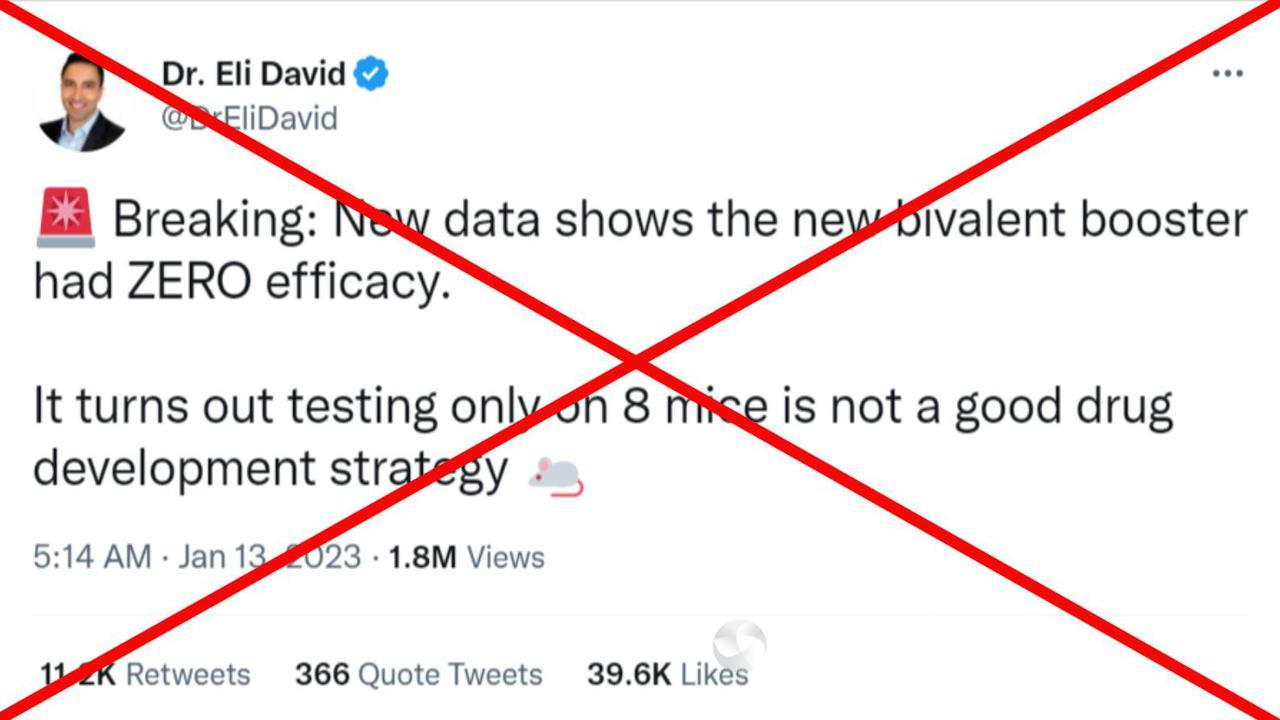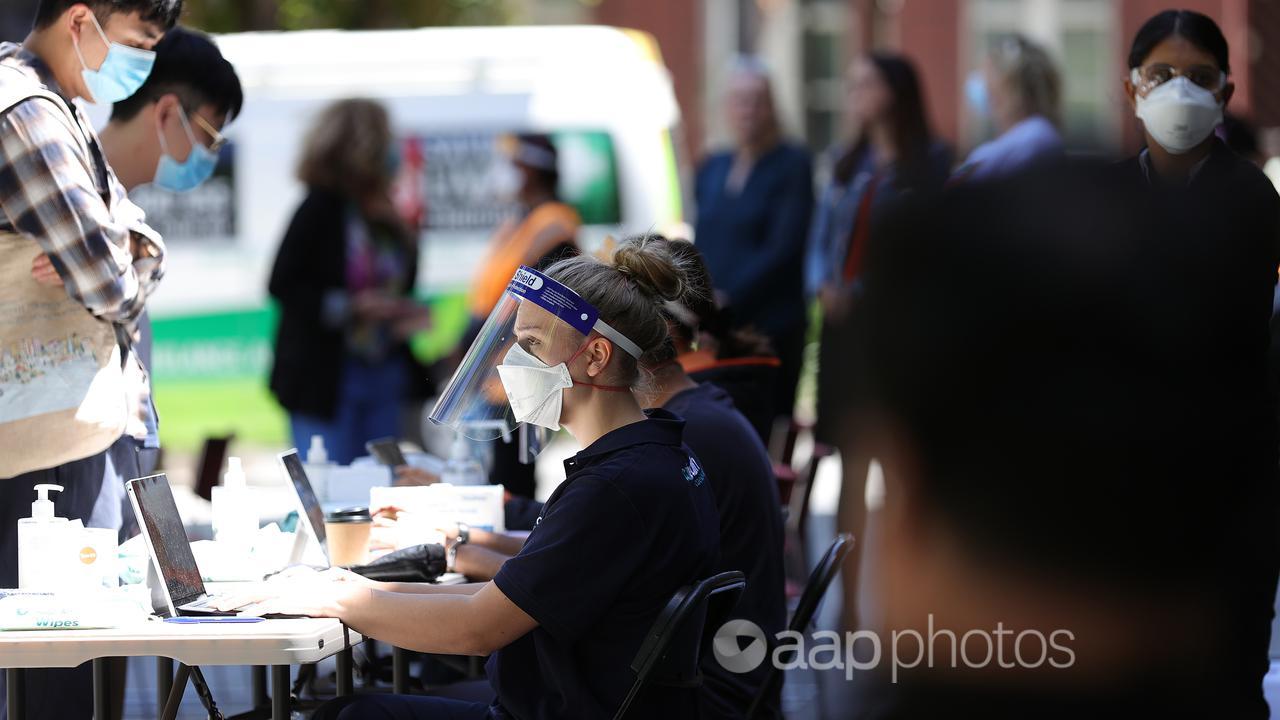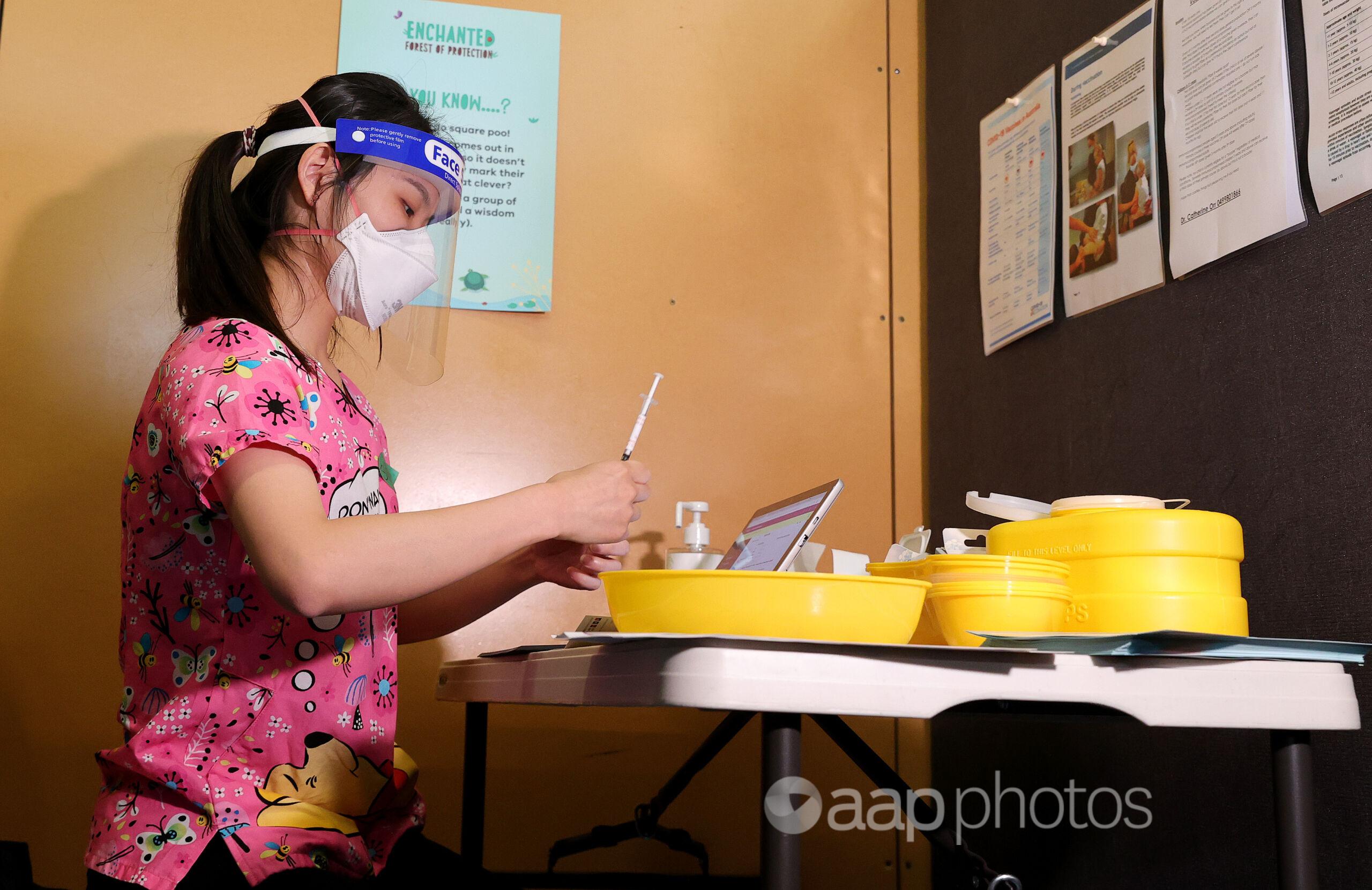A social media post uses two new vaccine studies to claim bivalent COVID-19 boosters have zero efficacy.
But this is false. In reality, the studies conclude that bivalent Moderna and Pfizer boosters attack the virus as well as, but no better than, the original vaccines.
The boosters are known as bivalent vaccines because they protect against different strains of the COVID virus – the original strain and Omicron subvariants BA.4 and BA.5, which have identical spike proteins.
The false claim was made on Twitter on January 13, 2023 by Dr Eli David, who describes himself as a “researcher, lecturer, entrepreneur and investor”. His tweet has since been shared on Instagram and Facebook, such as here, here and here.
The original claim reads: “Breaking: New data shows the new bivalent booster had ZERO efficacy. It turns out testing only on 8 mice is not a good drug development strategy”.

Beneath the tweet, Dr David links to an article with the headline: “Bivalent COVID Boosters Offer No Extra Protection, Studies Suggest”.
Rather than claiming bivalent boosters aren’t effective at all, the article suggests the “new mRNA bivalent boosters produced by Moderna and Pfizer only attack the COVID-19 virus about as well as the companies’ first-wave vaccines”.
Neither the Instagram nor Facebook posts provide a link to the news story.
The article references two studies, published in The New England Journal of Medicine on January 11, 2023, that assess the effectiveness of the bivalent Pfizer and Moderna boosters.
One of these studies, led by Dr Dan Barouch, director of the Center for Virology and Vaccine Research at Beth Israel Deaconess Medical Center, is titled “Immunogenicity of BA.5 Bivalent mRNA Vaccine Boosters”.
Dr Barouch told AAP FactCheck their data showed the bivalent booster worked well.

“It’s just not clear whether it is substantially better than the original vaccine, which also works well,” Dr Barouch said in an email.
The other study, led by Professor David Ho of Columbia University’s Department of Microbiology and Immunology, is titled “Antibody Response to Omicron BA.4–BA.5 Bivalent Booster“.
Prof Ho debunked Dr David’s tweet to AAP FactCheck, saying the claim had twisted the facts of their study.
“Our study showed that the new bivalent vaccine can boost antibodies against Covid but no better than the original monovalent vaccine,” Prof Ho said.
Co-author Dr Aubree Gordon also described the claim as misinformation.
“Our study looked at neutralizing antibody responses, not efficacy,” Dr Gordon told AAP FactCheck. “While neutralizing antibody responses [has] been correlated with efficacy, they are not the same.”
She added: “I would point out that both the bivalent booster and a fourth dose of the monovalent booster generated higher levels of antibodies than having three doses of monovalent. Meaning they both worked, but the bivalent booster did not appear (at least at 30 days when measuring neutralizing antibodies) to give a benefit over the original vaccine.”
AAP FactCheck has previously debunked claims that the Pfizer booster was tested only on eight mice.
The Verdict
The claim that new data shows Moderna and Pfizer’s bivalent COVID boosters have zero efficacy is false.
The two studies that the claim relies on concluded the boosters were effective, but not substantially more so than the original vaccine.
The authors of both studies confirmed to AAP FactCheck that their data had been misinterpreted.
False – The claim is inaccurate.
* AAP FactCheck is an accredited member of the International Fact-Checking Network. To keep up with our latest fact checks, follow us on Facebook, Twitter and Instagram.
All information, text and images included on the AAP Websites is for personal use only and may not be re-written, copied, re-sold or re-distributed, framed, linked, shared onto social media or otherwise used whether for compensation of any kind or not, unless you have the prior written permission of AAP. For more information, please refer to our standard terms and conditions.


















